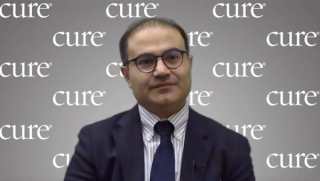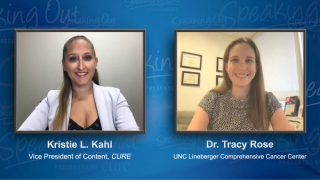
Bladder Cancer
Latest News
Video Series

Latest Videos
Podcasts
More News

The FDA granted fast track designation to AVZO-103 for the treatment of patients with previously treated locally advanced or metastatic urothelial cancer.

Keytruda and Padcev improve event-free and overall survival for adults with muscle invasive bladder cancer who cannot receive cisplatin after surgery.

Leading oncology experts share emerging research and developments shaping the year ahead, from precision medicine to innovative cancer therapies.

Trial data showed a 62% complete response rate at 6 months with detalimogene coraplasmid among patients with high-risk, BCG-unresponsive bladder cancer.

Dr. Joshua Sabari, Dr. Petros Grivas, and Dr. Chandler Park discuss new developments in perioperative therapy for muscle-invasive bladder cancer.

Dr. Minetta Liu explains how Signatera detects tumor DNA after bladder surgery, guiding treatment and identifying patients who need immunotherapy.

Participating in the SUNRiSE-1 trial taught Bill, a USC Norris patient, the value of education, teamwork, and persistence for patients with bladder cancer.

Bill, a USC Norris patient, joined the SUNRiSE-1 trial for Inlexzo, avoiding bladder removal and reaching full remission from BCG-unresponsive bladder cancer.

Fran Curtis is a survivor of breast, appendix and skin cancer, but said bladder cancer was the toughest.

The FDA accepted an application for Padcev plus Keytruda for patients with muscle-invasive bladder cancer ineligible for cisplatin-containing chemotherapy.

Loqtorzi improved progression-free and overall survival versus chemotherapy in HER2-expressing advanced urothelial cancer.

Adding Imfinzi to Bacillus Calmette-Guérin therapy improved disease-free survival for patients with high-risk, non-muscle invasive bladder cancer.

Among patients with muscle-invasive bladder cancer, perioperative Imfinzi to chemotherapy doesn’t have a detrimental effect on patient-reported outcomes.

The addition of Tecentriq to BCG therapy did not significantly improve outcomes for patients with non–muscle-invasive bladder versus BCG alone.

Dr. Patrick J. Hensley explains non-muscle invasive bladder cancer, bladder-preserving treatments, trial eligibility, novel therapies and research priorities for patients.

In September 2025, the FDA approved new treatments for breast, bladder and prostate cancers, plus biosimilars and a subcutaneous immunotherapy option.

Urothelial carcinoma, the most common type of bladder cancer, is explained from diagnosis to treatment.

This issue of CURE highlights personal stories and expert insights, from living with multiple diagnoses to self-advocacy, nutrition and survivorship care.

The FDA has approved Inlexzo for adults with BCG-unresponsive non-muscle invasive bladder cancer with carcinoma in situ.

TAR-200 eliminated tumors in 82% of patients in a phase 2 trial for patients with high-risk non-muscle-invasive bladder cancer.

PredicineCARE, a urine-based test, is under FDA review as a companion diagnostic for bladder cancer, building on previous data and biomarker insights.
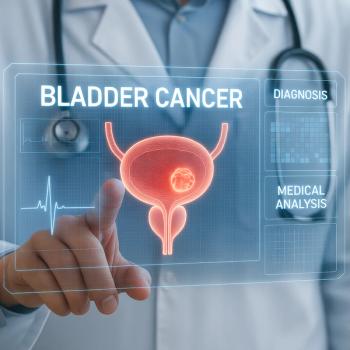
This guide provides an overview of bladder cancer, from diagnosis to treatment, helping patients understand options, manage side effects, and plan care.
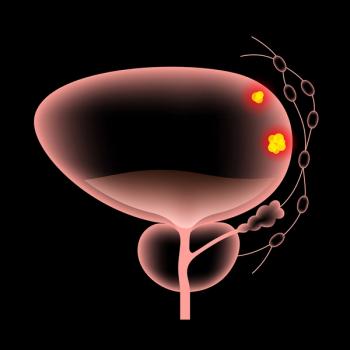
Alpha1H shows benefit in non-muscle invasive bladder cancer, shrinking tumors and boosting the immune system with manageable side effects.

Keytruda and Padcev generated promising topline results for those with muscle-invasive bladder cancer who are ineligible for cisplatin-based chemotherapy.
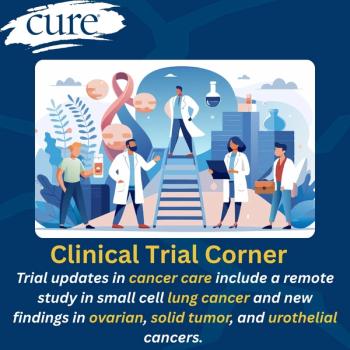
Clinical trial updates in cancer care include a remote study in small cell lung cancer and new findings in ovarian, solid tumor, and urothelial cancers.






















